
Viking Names
Thorwif
Þorwīf is a postulated Anglo-Scandinavian hybrid name formed from the Old Norse element Þor– from the god Þórr ‘Thor‘ combined with the Old English element wīf ‘woman, wife’. Forms of Þorwīf are attested in medieval Yorkshire charters.
Read More
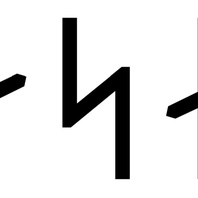
Viking Names
Asa
Ása was a common name throughout Scandinavia, including quite a few examples in Swedish and Danish runic inscriptions, but used fairly sparingly in Iceland. There are three examples in Domesday Book for Yorkshire. It is a short form for Old Norse names in Ás- from áss, óss ‘a god’.
Read More
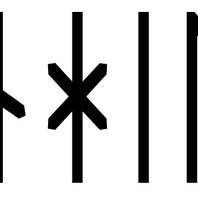
Viking Names
Gunnhild
Gunnhildr is a very common female name throughout the Viking world. In England, the name has a particularly wide geographical distribution that extends beyond the Danelaw and beyond the Viking Age. Its popularity was most likely influenced by its use in the Danish royal family in the eleventh century, when it was borne by an aunt, a daughter and a niece of King Cnut. The name is also the first element of the place-name Gunthorpe, Nottinghamshire.
Read More
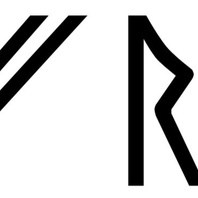
Viking Names
Ingifrid
Ingifríðr appears fairly frequently in Denmark and Sweden. The name is attested twice in England during the Middle Ages in the forms Ingefrit and Ingefrid in documents from Lincolnshire and Yorkshire respectively. It is an Old Norse compound name with its first element Ingi-, which is of doubtful origin but might relate to a Greek word meaning ‘lance’ or ‘staff’ combined with and the second element -fríðr, related to Gothic frījōn ‘to love’, with original meaning ‘loved’, later ‘fair’. In origin it is thus the same name as Ingiríðr.
Read More

Viking Names
Asgerda
Ásgerða is a predominantly West Scandinavian (Norway and Iceland) name and is a weak form of the more common Ásgerðr, which is also found in Swedish runic inscriptions. Asgarthcroft, a field name recorded in 1523 in Aberford, West Yorkshire, had Ásgerða or Ásgerðr as its first element. Both elements are common in Old Norse name-formation, the first meaning Ás- ‘a god’ and the second being the feminine equivalent of masculine -garðr, probably meaning something like ‘protection’.
Read More
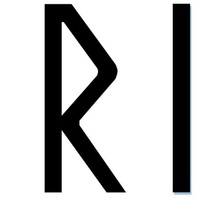
Viking Names
Ingirid
Ingiríðr is very common in Norway but less so in Iceland. It is also recorded in Denmark and Sweden. The name is also attested in medieval documents from Lincolnshire and Yorkshire. It is also the first element of the place-name Ingerthorpe, West Yorkshire. It is an Old Norse compound name with its first element Ingi–, which is of doubtful origin but might relate to a Greek word meaning ‘lance’ or ‘staff’ combined with –fríðr, related to Gothic frījōn ‘to love’, with original meaning ‘loved’, later ‘fair’. In origin it is thus the same name as Ingifríðr.
Read More
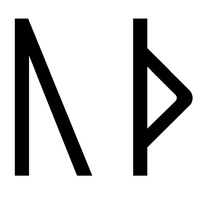
Viking Names
Auda
A single instance of Auða is recorded in West Scandinavia (Norway and Iceland). It was unknown in Denmark but a few instances of Auða are recorded in Swedish runic inscriptions. The form Auda is recorded in a medieval Lincolnshire document. Auða is a short form of Old Norse names in Auð-, an element which is obscure in origin but is perhaps auðr ‘wealth’ or from the stem in auðinn ‘that befalls one’ and jóð ‘new-born baby’.
Read More
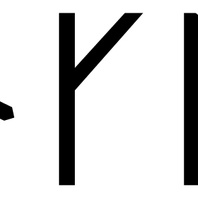
Viking Names
Langlif
In Scandinavia, the female name Langlíf is first recorded from the middle of the twelfth century. It is suggested that it occurs in scattered (and often late-recorded) place-names in England, in North Yorkshire and in Cumberland. Its occurrence in a minor name Leevingrey Furlong in Flintham, Bingham Wapentake, Nottinghamshire, has been disputed. The name also occurs in twelfth- and thirteenth-century documents from Norfolk. The name means ‘long life’ and may originally have been a by-name.
Read More

Viking Names
Audhild
The Old Norse female personal name Auðhildr is a compound formed of the first element Auð-, which is obscure in origin but perhaps auðr ‘wealth’ or from the stem in auðinn ‘that befalls one’ and jóð ‘new-born baby’, combined with the second element -hildr ‘battle’. A woman by the name of Auðhildr was recorded recorded as having lived in the Orkneys in the early twelfth century. Auðhildr is believed to be the first element in the medieval field name of Odelgateland in Stainburn, West Yorkshire. It also appears in medieval Lincolnshire and Yorkshire documents. However, some forms of the name may represent the Continental Germanic female name Odil.
Read More

Viking Names
Ingus
Ingus is possibly an Anglo-Scandinavian formation because it is not attested in Scandinavia and perhaps only survives in the place-name Ings Beck, North Yorkshire. In the twelfth century the place-name was recorded as Ingusbec. The name is possibly a short form of the Old Norse female name Ingiríðr.
